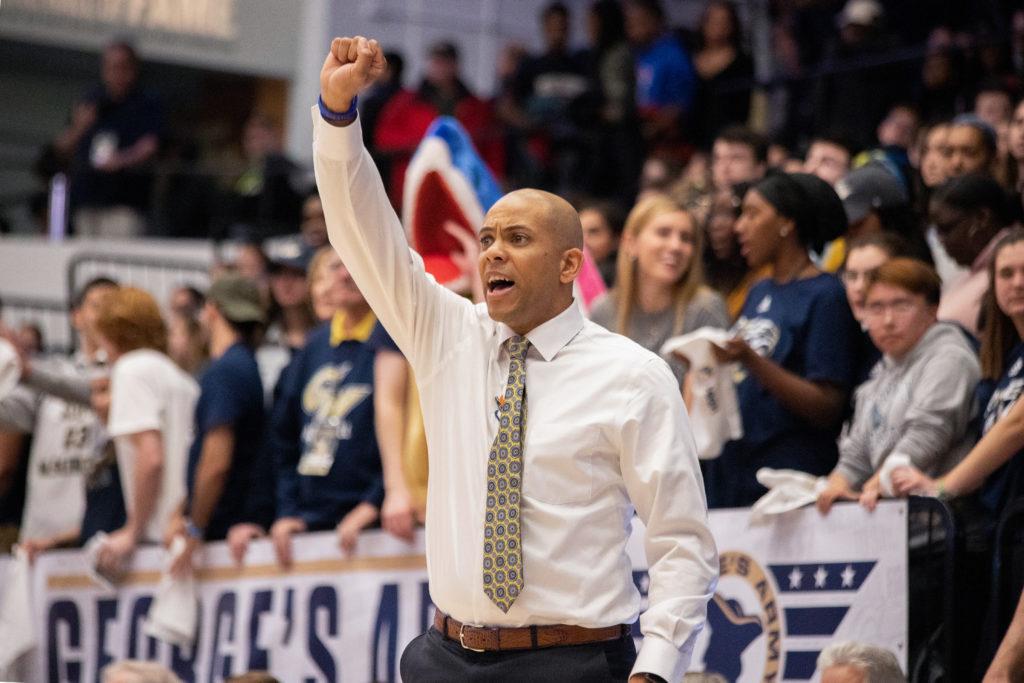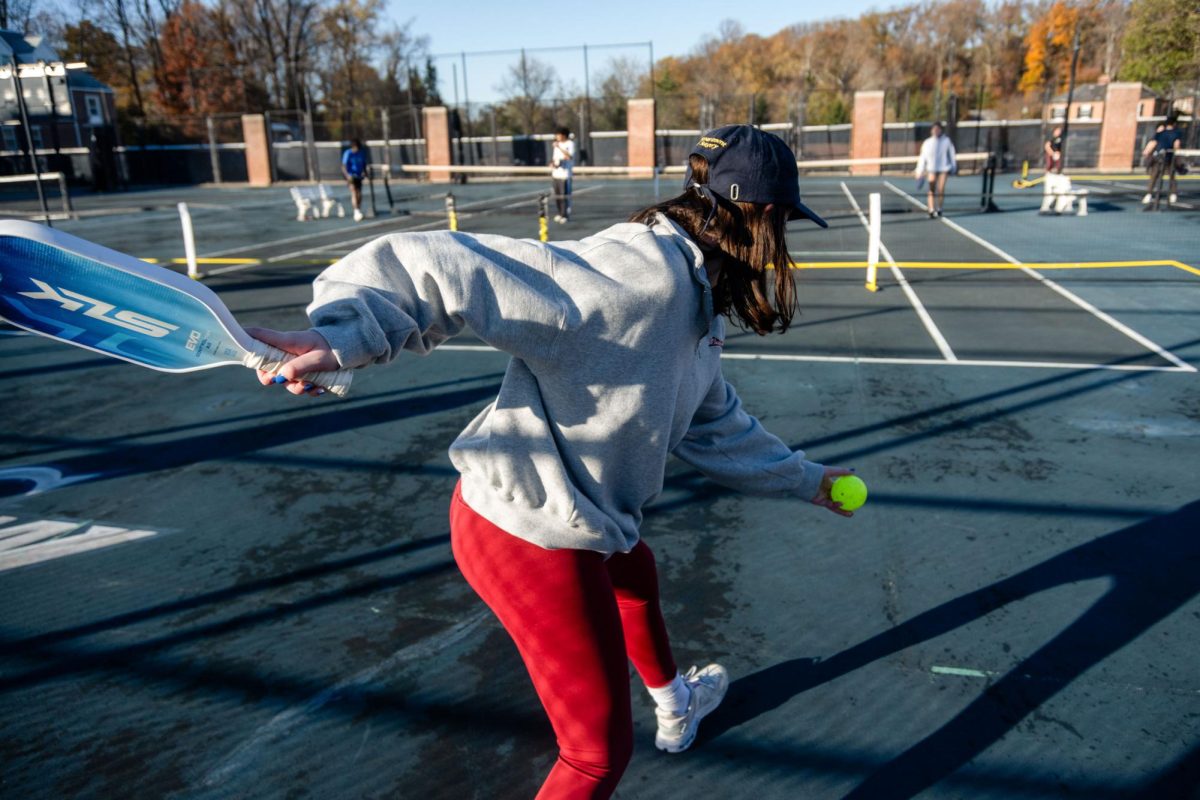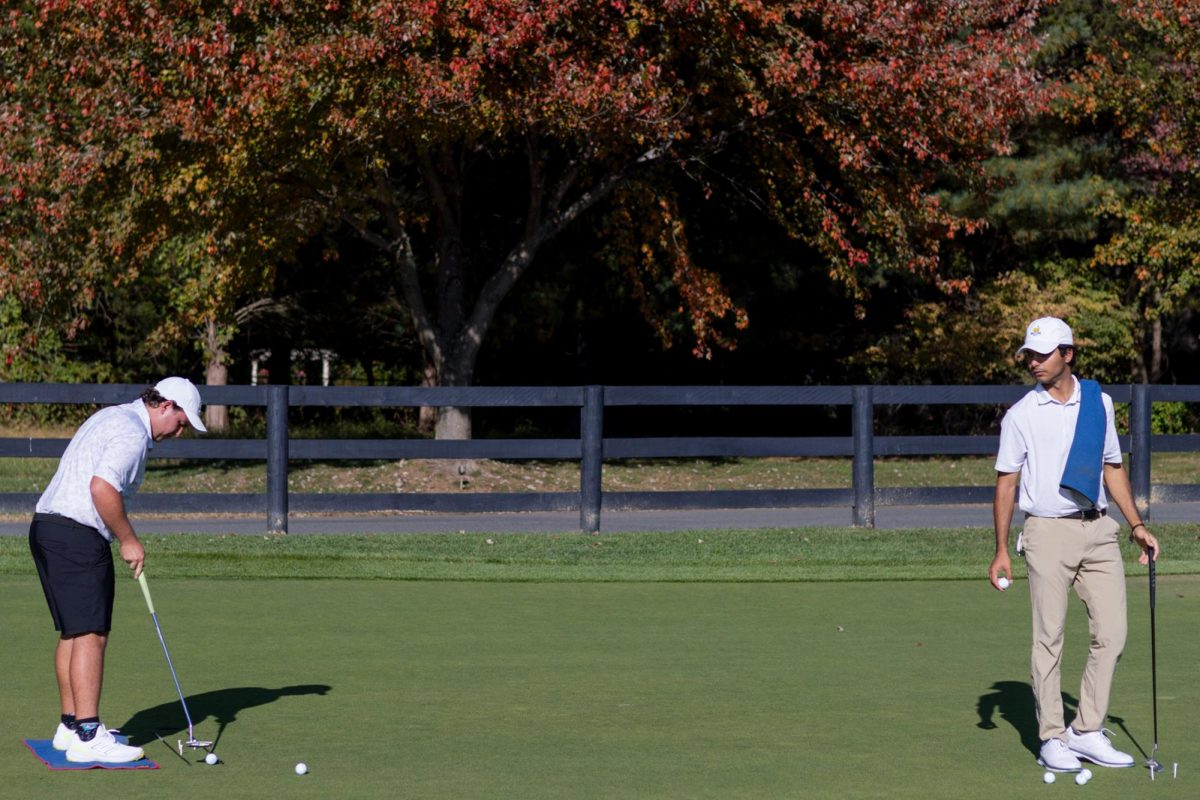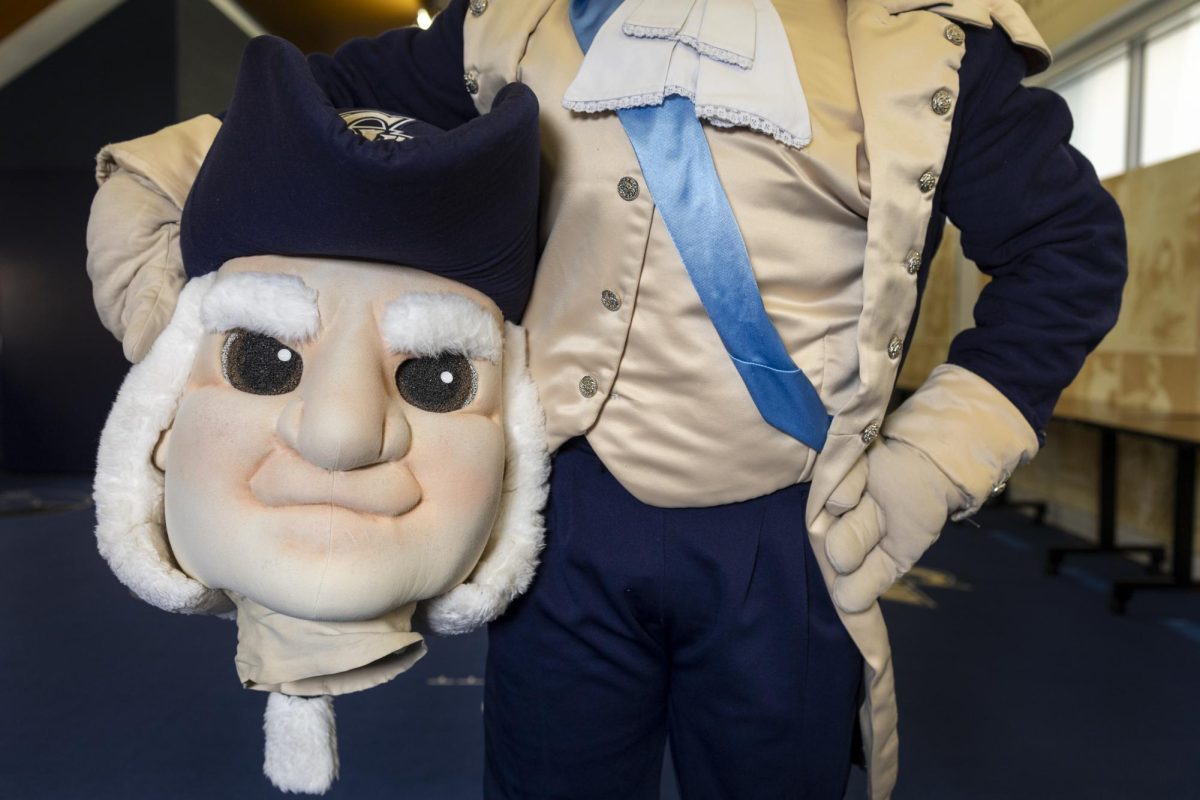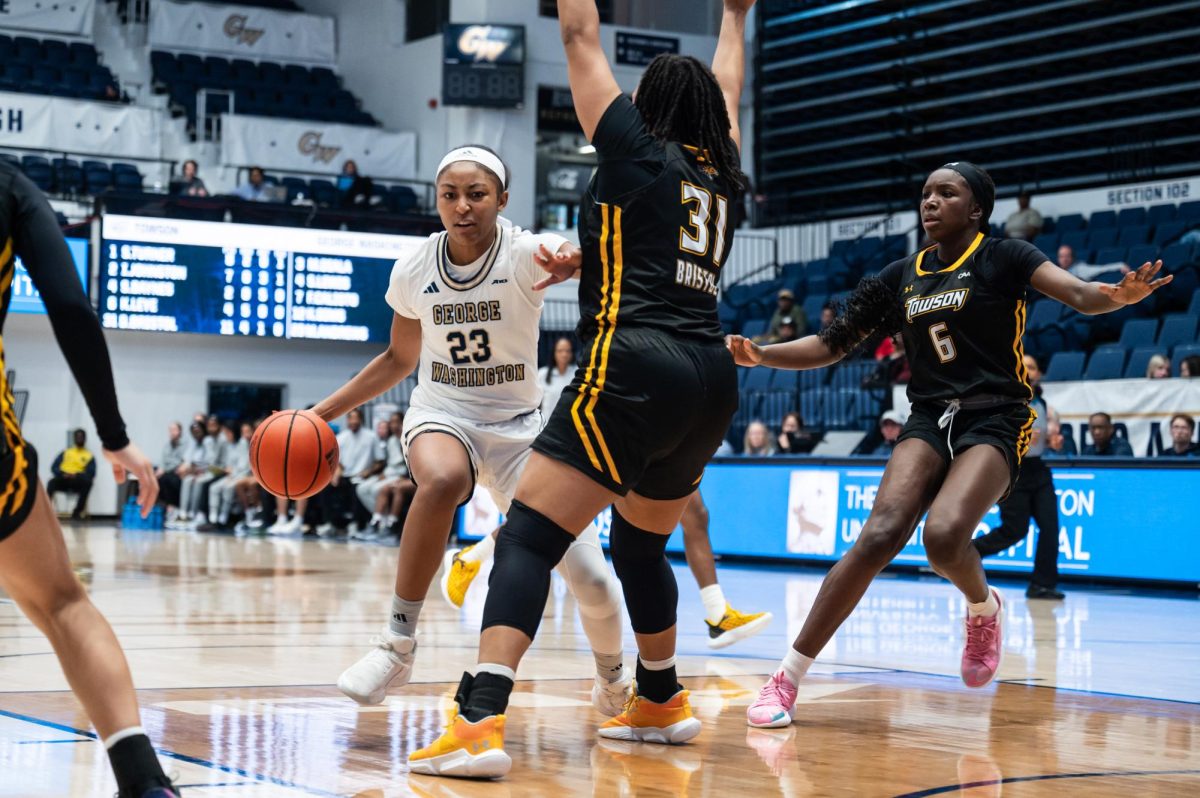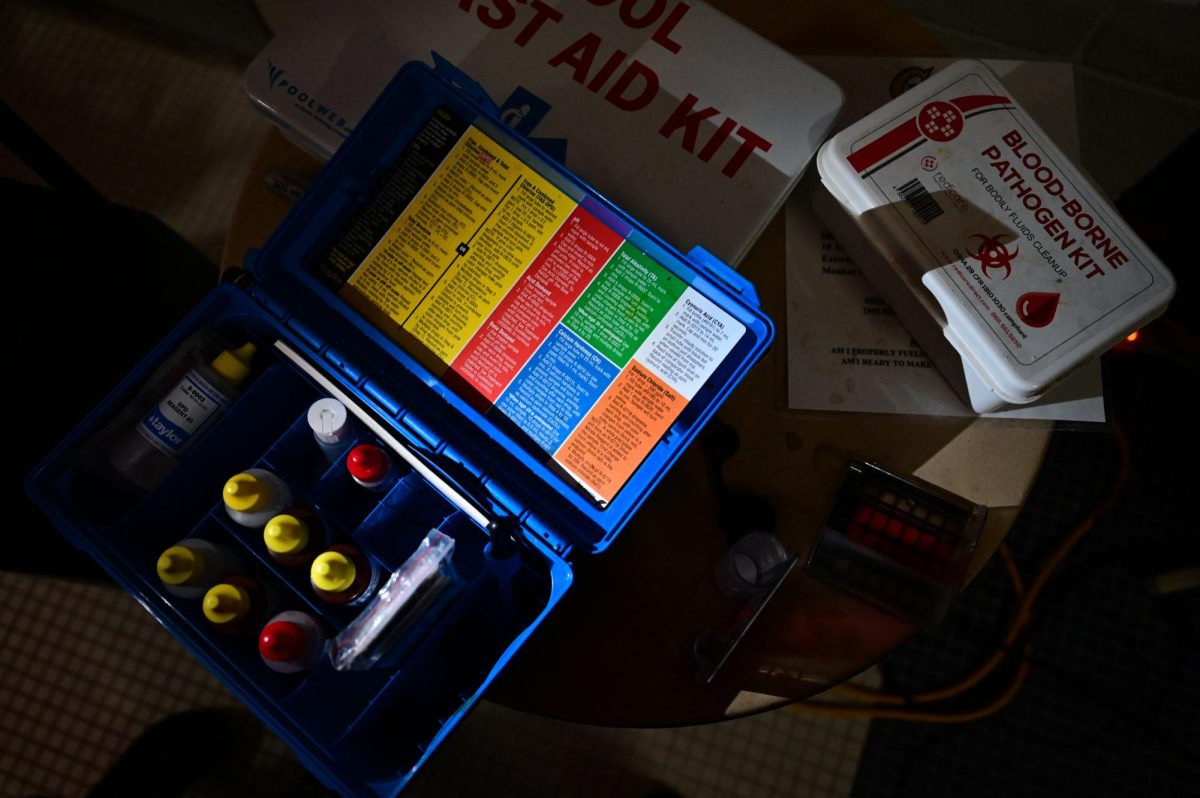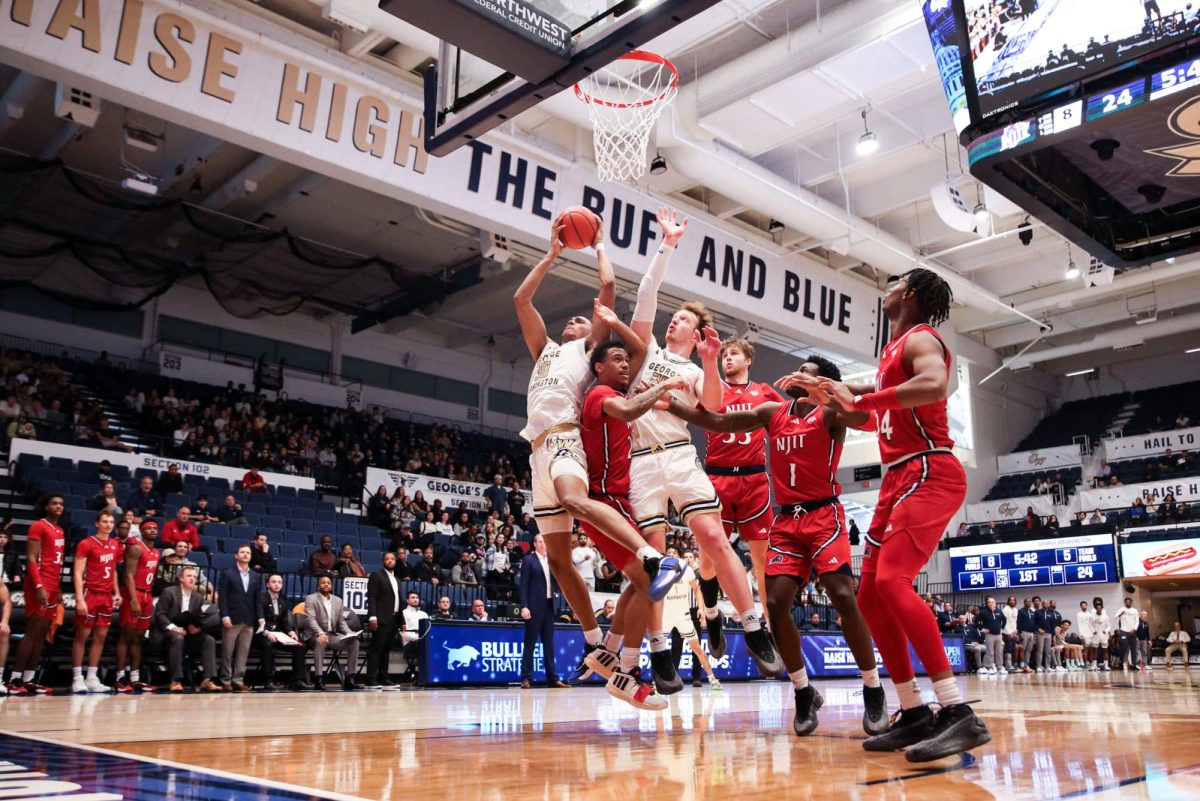For the first time in more than 20 seasons, men’s basketball will sport a roster with each hometown in a domestic zip code.
The men’s basketball program has a storied history of being an international recruiting powerhouse, bringing in eventual professional talent like 1995-99 forward Yegor Mescheriakov, 2006-graduate forward Pops Mensah-Bonsu and 2018-graduate forward Yuta Watanabe.
But this season, all 16 members of the men’s squad live in the United States with nine members growing up in the DMV. In his second season with the program, head coach Jamion Christian said he and his coaching staff are in the process of expanding their network “all over the world.”
“That’s something that’s huge for us and really important for us as well,” he said. “We’re going to continue to do that and try to recruit the best players in the world.”
[gwh_image id=”1132219″ credit=”Ilena Peng | Contributing Web Developer” align=”none” size=”embedded-img”][/gwh_image]
GW’s record book is flooded with international talent. A mere 11 points separate 1998-graduate center Alexander Koul from Mescheriakov at No. 7 and No. 8, respectively, on the all-time scoring list. The big men were recruited in their native-Belarus and combined for 3,301 points at GW.
Koul cemented himself as a GW great, earning No. 8 in program history in rebounds (889) and No. 1 in blocks (188). Four of the top-five leaders in blocks – Koul, Japan-native Watanabe at No. 2, England-native Mensah-Bonsu at No. 4 and 1992-94 center Nigeria-native Yinka Dare – hail from outside the United States.
The Colonials first broke onto the international recruiting scene in the 1990s under head coach Mike Jarvis, who led the program to four NCAA Tournament appearances, including one Sweet 16 run. Jarvis and his coaching staff were one of the first college programs to begin recruiting internationally, and after recruiting players like Mescheriakov and Koul, the practice spread like wildfire across college basketball.
“The first time I went overseas there might have been two or three other coaches,” Jarvis told the Hartford Courant in 1998. “A year later, there were maybe 50. A year later it was 100.”
Christian, who spent the summer watching and analyzing past GW teams, said he plans to continue GW’s international recruiting, but he wants the squad to pick up meaningful additions.
“The goal is to get the right guys,” Christian said. “We just don’t want to have international guys here just to have an international guy. We want an international guy who’s going to make an impact here.”
In recent memory, 2016 graduate forwards Kevin Larsen, who is Danish, and Patricio Garino, who is Argentinian, led the squad to its best overall record in program history and an NIT victory. Watanabe, a sophomore from Japan at the time, also went on to find success at GW, netting 1,460 career points at a .425 clip from the field.
Christian said the coaching staff is looking for players like Garino who can enter the program and make an immediate impact. He said the coaching staff is looking for talent around the world on continents like Europe and Australia.
“He came in as a freshman as a dominant defensive player and had a tremendous career here, and those are the kind of guys we want, that we think we should get,” he said. “We think we should bring international guys that are the best players on their national team, the best players in their countries, and can come here and make an impact right away.”
GW is the only team in the Atlantic 10 with a fully domestic roster. Davidson leads the way with five rostered international student-athletes and Richmond, Fordham and Saint Louis trail behind with three rostered international athletes.
The A-10 includes 12 athletes from European countries, six players from Canada, two athletes from South Korea, three athletes from Caribbean countries, two players from countries in Africa and one student-athlete from New Zealand.
Christian said he’s spacing his international recruitment out around the world, and he’s landed connections in Australia and New Zealand from past recruits while he coached at Mount Saint Mary’s. Tafara Gapare, a recruit from New Zealand originally intended to enter college in 2021 but reclassified to 2022, committed to the program in May.
“Having some familiarity with the people there and some of the programming there does help,” he said.
Graduate student forward Matt Moyer said he played with players from Slovakia and Croatia while in his first two seasons at Syracuse. He added that international players can bring in a fresh basketball perspective and different playing techniques.
“They definitely bring a wide range of knowledge to the game and just that different play style, European play style, it’s just different,” he said. “And I think you can benefit our play style.”
Even though he is from D.C., junior forward Ricky Lindo Jr. has international playing experience, holding dual citizenship in Panama and representing the nation at the 2017 Centrobasket U17 Championship. Lindo Jr. will need to sit out the 2020-21 season due to NCAA transfer rules after playing two seasons at Maryland.
Junior forward Sloan Seymour said he had experience playing with an athlete from Romania who offered a “beneficial” perspective to the game. But he added that the squad is in a good place with the personnel it currently has.
“When they bring that to a team, I just really think it’s beneficial, but we really trust the coaching staff and teammates we have, so I think we’ll be fine,” he said.


